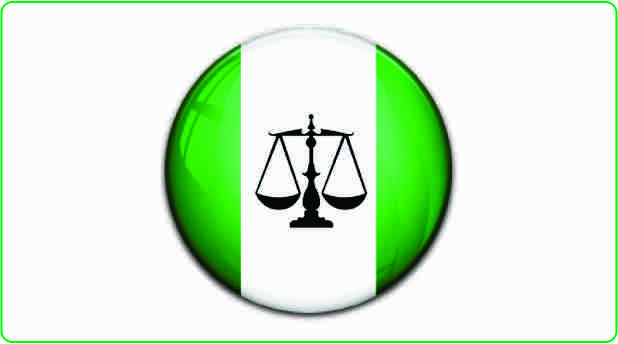Nigeria is a country that is now in a democratic regime since the coming of the democratic regime in May 29, 1999. The democratic system of governance is made up of the Executive, the Judiciary and the Legislature. However the judiciary system of Nigeria is yet to be the last hope of the common man. The function of the judiciary system of Nigeria is to protect the people of Nigeria from injustice and be a refuge for the ordinary people of Nigeria. This article talks about the problems of the Nigerian judicial system and possible solutions. In Nigeria we see the judicial system manipulated by bureaucracies and people from the top class of the society.
This should not be so for a system where it is government of the people for the people and by the people. The problems and solutions of the Nigerian judicial system are below.
Corruption of the judicial system
Bribing of judicial officers is very common in Nigeria since these officers receive bribes to pervert justice. Corruption have deep roots in the judicial system of Nigeria. Court decisions are under the influence of bribe and this is detrimental to a transparent judicial system in Nigeria. Nigerians do not get justice because of corruption when they go to the court of law. This have tarnished the image of the Nigerian judicial system. All the officers of the Nigerian judiciary are not corrupt but the corrupt ones are tarnishing the image of the judiciary.
Fair hearing and justice are no longer guaranteed when someone goes to court.
Back logging cases that are pending
There were speculations about inefficient number of judges inside the country. Cases take more time to finalise including verdicts. A lot of judges need to be engaged to cut down the workload on each judge. However few of these judges are engaged in Nigeria making it take more time thereby leading to adjournment. Unethical practices including delays on the defense counsels with prosecution elongate cases of crime. Sometimes chieftaincy cases and title cases linger on and on.
There is need to engage more judges in Nigeria. Relevant authorities like court leaders should report illegal activities to the regulatory body in Nigeria which is the National Judicial Council (NJC). The rules governing the judicial activities in Nigeria should not be neglected. These rules are stipulated by the Rules of Court, the Administration of Criminal Justice Act and Practice Directions.
Lack of judicial independence
The Nigerian judicial system is not independent since they are under the influence of the higher class of Nigeria. One of the objectives of the judicial system is to regulate the activities of the Legislative and the Executive. This is to ensure that they keep the constitution of the Federal Republic of Nigeria. Political people and Nigerian elites influence the judiciary and topple justice because the judiciary system is not independent.
The judiciary in Nigeria is sometimes under the influence of the Executive and Legislature which is unconstitutional, null and void and a violation of the rule of law. Democratic governance will not flourish in Nigeria until the rule of law is given its place in Nigeria. The judiciary in Nigeria should not get any interference from other bodies in administering justice for the common Nigerian.
Inadequate structures
There are inadequate structures for the judicial system in Nigeria to operate. Accommodation is an issue in courts and for the judicial officers in Nigeria. The Nigerian government should build more courts and more houses to accommodate the increasing need of the judicial system in Nigeria. This will help to tackle the problem of accommodation in various courts across the country.
Low application of ICT
Information and Communication Technology (ICT) helps the courts to capture information and exchange data since information move faster with ICT. Ejustice enables the automation of the payment of fees through some websites. This will help to cut down corruption and streamline the proceedings of the court since users can now access them online. However better measures should be put in place to secure and preserve data and investments.
The Supreme Court of Nigeria have taken some measures to bring in ICT but there is more need for that. Power supply will enhance this.
Indifference to court rulings
Public office holders are indifferent to rulings and the courts are often shut down because of rivalry between politicians. The Executive in Nigeria often do not keep court rulings and this is because these judicial officers in Nigeria are appointed from the Executives. This makes them have no regard for the judiciary. There should be a regulatory body to ensure that court rulings in Nigeria are not neglected by both the Executive and the Legislature. The appointment system should reduce the powers of executive in appointing the members of the judiciary since this makes them influence court decisions.
The news media and social media should create more awareness and cry out where court rulings are violated.
Apathy from law enforcement agents
Law enforcement agents are still under the influence of politicians and they do not enforce the court rulings. This have led to the violation of the constitution of Nigeria. One can bribe the Nigerian law enforcement agents. People take time to sit in courts and get judgements only for law enforcement agents to disregard the rulings.
Public image of the judiciary
The Nigerian judiciary have lost the image as the keeper, protector and last hope of the common Nigerian. This have damaged the image of the judicial system of the country due to corruption. It will take a reform for the image of the judiciary to be restored.

